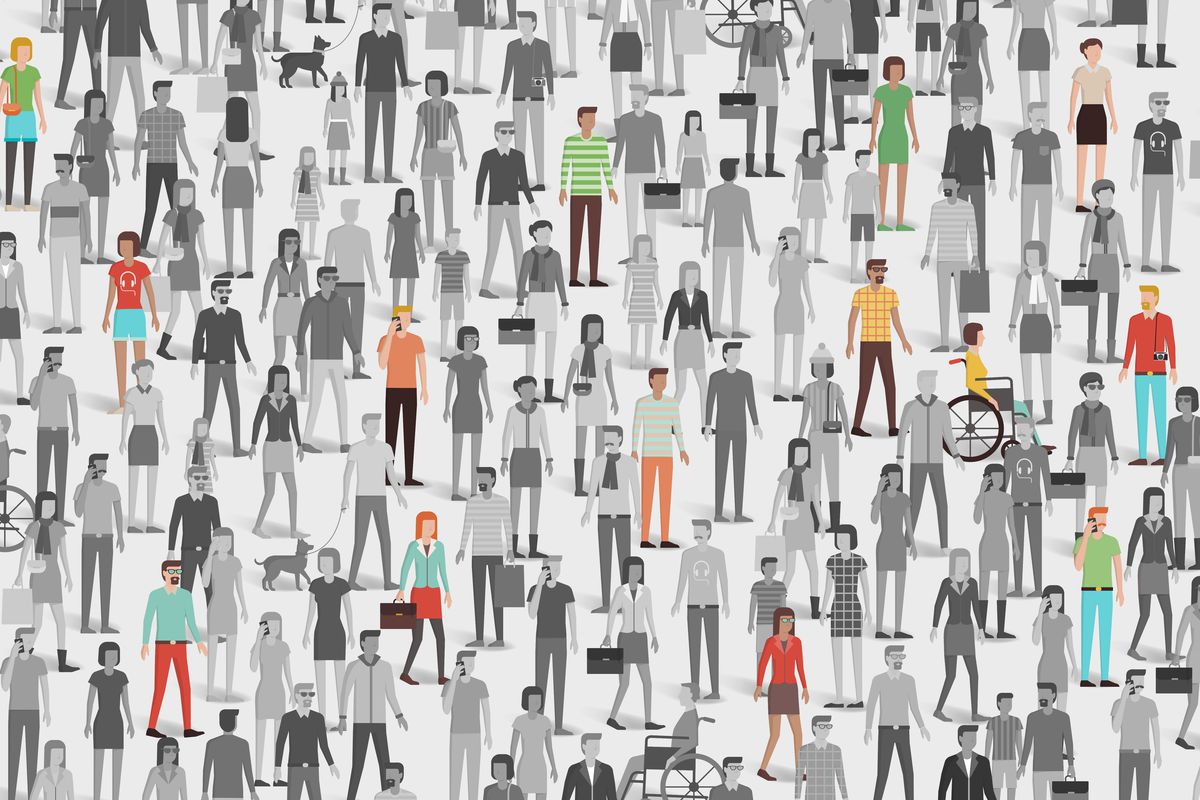The Impact of Stress and Mental Wellness on Decision-Making
The impact of stress and mental wellness on decision-making
Make decisions is an integral part of our daily lives. From simple choices like what to eat for breakfast to complex determinations about career paths or relationships, our decision makes abilities importantly impact our quality of life. Yet, when stress levels rise and mental wellness struggles emerge, the decision make process can become compromise in ways many people don’t full understand.
The neuroscience behind stress and decision-making
To understand how stress affect decision-making, we must firstly examine what happen in the brain during stressful situations.
The stress response system
When we experience stress, our bodies activate the sympathetic nervous system, trigger the release of stress hormones like cortisol and adrenaline. These hormones prepare us for a” fight or flight ” esponse, which was evolutionarily advantageous for our ancestors face physical threats.
Nevertheless, in modern contexts, this stress response can importantly impair higher order thinking. The prefrontal cortex — the brain region responsible for rational thinking, planning, and decision-making — become less active during stress, while the amygdala (associate with emotional processing and fear responses )become hyperactive.
Cognitive narrowing
Under stress, our attention narrow to focus on perceive threats. This phenomenon, know as cognitive narrowing, mean we process less information and consider fewer alternatives when make decisions. Research show that stress individuals tend to focus on immediate rewards kinda than long term consequences, potentially lead to shortsighted choices.
How different mental health challenges affect decision-making
Depression and decision paralysis
Depression oftentimes manifest as indecisiveness or decision paralysis. People experience depression may struggle with:
- Diminished ability to experience pleasure (aanhedonic) make it difficult to feel motivated by potential rewards
- Negative cognitive biases that cause them to overestimate risks and underestimate benefits
- Mental fatigue that make the decision make process feel overwhelming
- Rumination on past decisions, create a cycle of self uncertainty
These factors can lead to avoidance of decisions totally or default to the status quo, yet when change would be beneficial.
Anxiety and risk aversion
Anxiety disorders importantly alter how we evaluate and respond to risk. People with anxiety tend to:
- Overestimate the probability of negative outcomes
- Catastrophize potential consequences
- Seek excessive information before make decisions (analysis paralysis )
- Avoid uncertainty, still at significant personal cost
This heightens risk aversion can prevent individuals from pursue opportunities that involve any degree of uncertainty, potentially limit personal and professional growth.
ADHD and impulsive decision-making
Attention deficit / hyperactivity disorder (aADHD)present unique challenges to dedecision-makingone:
- Difficulties with executive function, which govern planning and self-regulation
- Impulsivity that can lead to snap decisions without full consideration of consequences
- Challenges with delay gratification
- Inconsistent attention to relevant details when weigh options
These factors can result in a pattern of inconsistent decision-making that doesn’t constantly align with long term goals.
Common decision make biases amplify by stress
Stress and mental health challenges don’t precisely impair our general decision make capacity — they too amplify specific cognitive biases that we’re totally prone to.
Status quo bias
When stress or mentally tax, we’re more likely to stick with familiar options instead than consider alternatives. This status quo bias can prevent us from make beneficial changes, specially during periods when adapt to new circumstances might be well-nigh necessary.
Confirmation bias
Stress intensify our tendency to seek information that confirm our exist beliefs while dismiss contradictory evidence. This confirmation bias create echo chambers that limit our perspective and can lead to poor decisions base on incomplete information.
Sunk cost fallacy
Mental health struggles oftentimes make it harder to let go of past investments of time, energy, or resources. This sunk cost fallacy keep people commit to fail courses of action because they’ve already invested importantly in them, instead than cut losses and move advancing.
The impact on different types of decisions
Financial decision-making
Financial decisions are specially vulnerable to stress effects. Research show that financial stress can lead to:
- More impulsive spending as a form of emotional regulation
- Greater risk taking in desperate situations
- Avoidance of financial planning and management
- Susceptibility to predatory financial offers that promise quick relief
These patterns can create cycles where financial stress lead to poor financial decisions, which in turn generate more financial stress.
Health relate decisions
When experience mental health challenges, people frequently make suboptimal health decisions, include:
- Postpone medical appointments due to anxiety or depression
- Make impulsive dietary choices for emotional comfort
- Struggle to maintain exercise routines due to low energy or motivation
- Self-medicate with alcohol or other substances
These decisions can worsen both physical and mental health, create a negative feedback loop.
Career and relationship decisions
Major life decisions are importantly affected by mental wellness. During periods of stress or mental health struggles, people may:
- Rush into career changes to escape current stress without adequate planning
- Avoid pursue promotions or opportunities due to self doubtfulness
- Make relationship commitments or endings base on temporary emotional states
- Isolate themselves when connection would be more beneficial
Strategies to improve decision-making during mental health challenges
Recognize decision fatigue
Decision fatigue — the deterioration of decision quality after make many consecutive choices — is amplified during periods of stress. Strategies to combat this include:
- Prioritize important decisions for times of day when you’re virtually mentally fresh
- Simplify routine decisions through habits and systems
- Recognize when you’re not in an optimal state to make important decisions
- Build in cool off periods before finalize significant choices
Structured decision make frameworks
Use formal decision make frameworks can compensate for cognitive limitations during stressful periods:
- Pro con lists that force consideration of multiple factors
- Decision matrices that weight different criteria objectively
- Recommitment strategies that lock in decisions before stress peaks
- Implementation intentions (” if so ” lans ))hat automate responses to anticipate situations
Mindfulness and emotional awareness
Develop mindfulness can help separate emotional reactions from decision processes:

Source: worldextrememedicine.com
- Practice emotional labeling to identify feelings without being control by them
- Use breathing techniques to activate the parasympathetic nervous system
- Create mental distance through third person self talk
- Conduct regular emotional check ins before make decisions
The role of social support in decision-making
Seek external perspectives
Other people can provide valuable input when our own decision-making is compromise:
- Trust friends can offer perspectives we might miss during stress
- Mentors can share wisdom from similar situations they’ve navigated
- Support groups provide collective wisdom from those face similar challenges
- Professional advisors bring expertise to complex decisions
Delegate decisions when appropriate
Sometimes, the best decision is to temporarily delegate decision make authority:
- Identify areas where others can make decisions on your behalf during difficult periods
- Create advance directives for health decisions
- Set up automate systems for financial decisions
- Establish clear criteria for when to reclaim decision make authority
Professional support for decision make challenges
Therapeutic approaches
Several therapeutic modalities specifically address decision make challenges:
- Cognitive behavioral therapy helps identify and correct distorted thinking patterns
- Acceptance and commitment therapy focus on values base decision make
- Dialectical behavior therapy teach distress tolerance and emotional regulation
- Problem solve therapy direct address decision make skills
Medication considerations
For some individuals, medication may help restore decision-making capacity:
- Antidepressants can reduce negative cognitive biases in depression
- Antianxiety medications may help manage overwhelming fear responses
- ADHD medications can improve executive function and reduce impulsivity
- Work intimately with healthcare providers to monitor medication effects on decision quality
Build resilience for future decision-making
Preventative mental wellness practices
Develop habits that support mental wellness create a buffer against decision make impairments:

Source: samatters.com
- Regular exercise improve mood and cognitive function
- Adequate sleep is essential for prefrontal cortex function
- Nutritional choices affect brain chemistry and cognitive performance
- Stress management techniques prevent chronic stress from impairing decision make
Decision make skills development
Like any skill, decision-making can be improved through deliberate practice:
- Reflect on past decisions to identify patterns and improvement opportunities
- Gradually expose yourself to progressively complex decisions
- Seek feedback on decision processes kinda than simply outcomes
- Study common decision biases to recognize them in yourself
Conclusion: compassionate decision-making
Perchance the well-nigh important insight about decision-making during mental health challenges is the need for self compassion. Recognize that perfect decisions aren’t possible — peculiarly during difficult times — can relieve pressure that oftentimes worsen decision quality.
By understand how stress and mental wellness challenges affect our cognitive processes, we can develop strategies to compensate for these effects and make more align decisions evening during difficult periods. This awareness doesn’t exactly improve individual decisions; it builds decision make resilience that serve us throughout life’s inevitable ups and downs.
Remember that seek help with decision-making isn’t a sign of weakness but of wisdom. Sometimes, the virtually important decision we can make is to reach out for support when our mental wellness is compromise.



